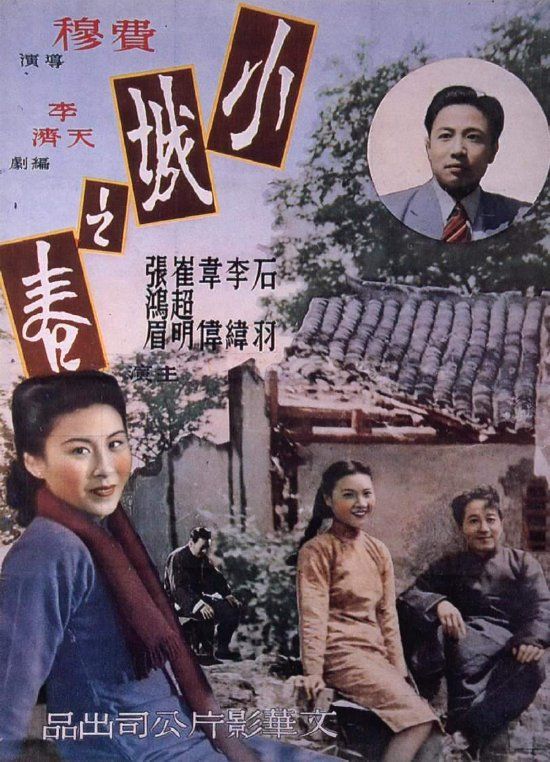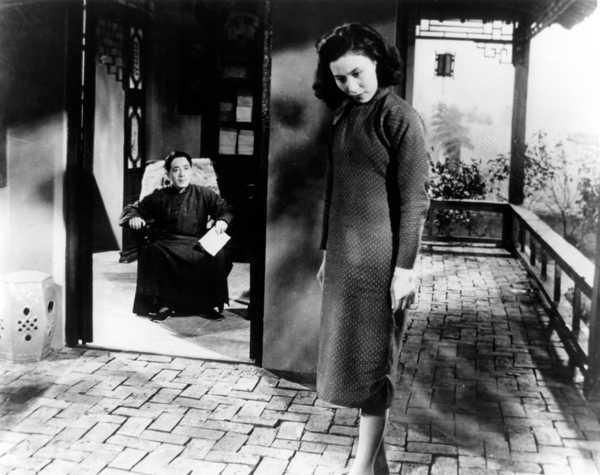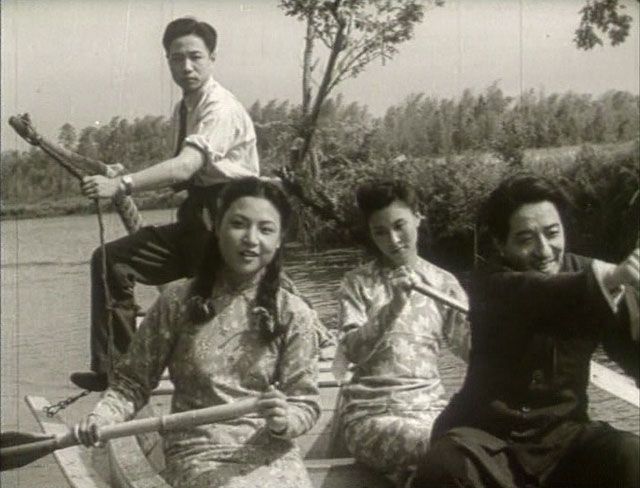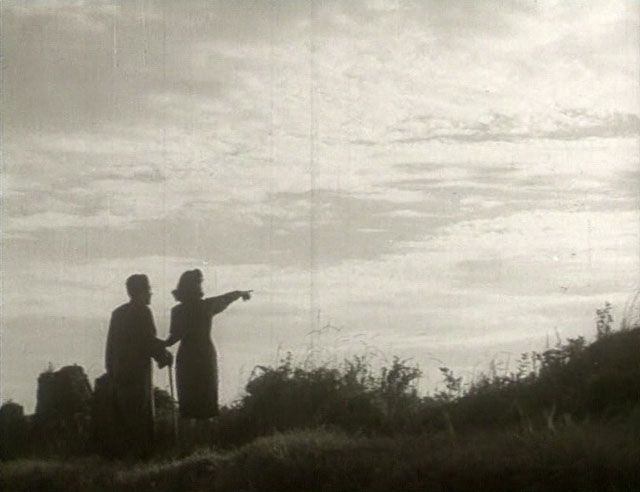Spring
in a Small Town (Xiao cheng zhi chun)
1948
Director: Fei Mu
Starring: Wei Wei, Shi Yu, Li Wei
When
I took my first, massive swipe at knocking off titles from 1001 Movies,
I went chronologically by decade, something I’m very glad of in
retrospect. The biggest advantage to
doing this was to encounter trends in filmmaking as they happened. The second advantage was watching how
national cinemas appeared, or perhaps disappeared. Take Germany for example: going
chronologically, I watched lots of German films in the beginning, then nothing,
not for decades. Rather poignant, that. On the flip side, there is only one Chinese
film that predates Spring in a Small Town in 1001 Movies, indicating that,
at least according to the editors of this book, Chinese cinema was still in its
birth during the early decades of filmmaking.
Spring in a Small Town was one of the first Chinese films to
rise to international stature, one of the first to be considered worth
preserving and worth seeing still to this day.
The
story is ripped straight from standard drawing room drama tales. Yuwen (Wei) has been married for eight years
to her invalided husband Liyan (Li). We
learn very early on that theirs is a loveless marriage, although they are still
affectionate with one another. She is
bored and suffocated by her endlessly repeated existence. Enter Zhichen (Shi), Liyan’s friend from
childhood and Yuwen’s former love. Her
resolve is thoroughly tested as the passion she used to feel and thought dead
and buried begins to rise again.
I
find it fascinating to discover the same sort of tropes I’m used to
encountering in Western costume dramas here, in a Chinese film from the
forties. I think that’s telling; it
indicates that there are similarities between all cultures, even in basic
romantic storylines. How often have I
seen this story played out, this sad sort of repressed love? Many, MANY times. I don’t hold this against Spring
in a Small Town, the fact that it’s telling a story I’ve heard before;
if anything, I like it more for telling a story I am familiar with from its own
unique cultural perspective. And the
China that is on display in Spring in a Small Town is from a
very distinct time period and culture.
(I will at this point reiterate my comparative ignorance about world
history – thank you, New Hampshire public education – so please, this is just a
quick review of what I taught myself on the interwebs; if I am grievously
mistaken on anything, please let me know.)
The second world war was over, China was no longer under Japanese
control, but the Communist Revolution had not yet taken over. This was a relatively short time period, and
the artistic result is a film with very little, if any, political
commentary. Spring in a Small Town is
a simple, sad little romance about a repressed woman and her long lost lover
who is definitely NOT her husband. It
does not feel allegorical or symbolic of larger issues. No, it is simply a romantic drama, nothing
more or less. This is probably a large
reason of why, when the Communist Revolution did succeed, Spring in a Small Town was
roundly denigrated, then forgotten, and nearly destroyed. I’m glad the film survived, though; it’s
worth a viewing, at least one, because of its purity of intent and because,
well, it certainly does repression well.
Spring
in a Small Town
gets very angsty. It moves slowly – it
is practically the definition of the slow burn.
And there’s little payoff. In my
first go around with Spring in a Small Town, I remember
feeling enraptured by this furtive, repressed romance between Yuwen and
Zhichen. This time, I was less affected
by it, but it still has its moments.
Despite the, um, VERY slow build up, I was still caught up when Yuwen
gets drunk, slips up, and throws herself at Zhichen. And it takes every smidgen of strength he has
to do the honorable thing. And I rather
enjoy it.
Spring
in a Small Town
is very reminiscent of Brief Encounter. Repressed woman narrating her own tale of
romantic feelings for a man, a doctor, who is not her husband? Brief Encounter. Frankly, Brief Encounter does it better –
loads better – but the voice over narration in particular I find important in Spring
in a Small Town. Just like in Brief
Encounter, it is crucial in providing us a critical window to Laura’s
soul so we understand her, we need that gateway to Yuwen, perhaps even more
so. As much as Laura presents a calm
façade to the outside world, Yuwen is one hundred times more serene on the
outside, never letting on for a second what might be happening under the
surface. This is actually a bit of a
detriment to the film; I needed more than a voice over to convince me of the
magnitude of Yuwen’s feelings, and the actress didn’t quite manage to convince
me on performance alone.
The
other major mark against Spring in a Small Town is the
condition of the film itself. This is,
sadly, a film that has not been preserved well in the slightest. The DVD is watchable, certainly, and the
English subtitles were clear (not always a given), but the image is hazy and
foggy and full of scratches. The sound
isn’t any better; it’s muffled and the background static is incredibly
loud. Even the original filming
conditions seem less than perfect, as the background noise cuts out in certain
parts of scenes, indicating that there was just no sound, PERIOD, while
recording. The story works well enough
in Spring
in a Small Town, but the logistics are incredibly lacking. It’s very difficult when it’s this bad not to
let this affect my read on a movie.
Spring
in a Small Town
was remade in China in the early 2000s, and I’m not surprised. The story is universal enough and works
pretty well, but the original film could use a brush up, more style, better
acting, and any sort of a soundtrack. I
have not seen the remake, but I’m glad at least someone thought it worthy of
telling again. Frankly, though, if I
want angsty romance, there are plenty of other films I’d choose over Spring
in a Small Town (Brief Encounter most definitely).
Arbitrary
Rating: 6/10



